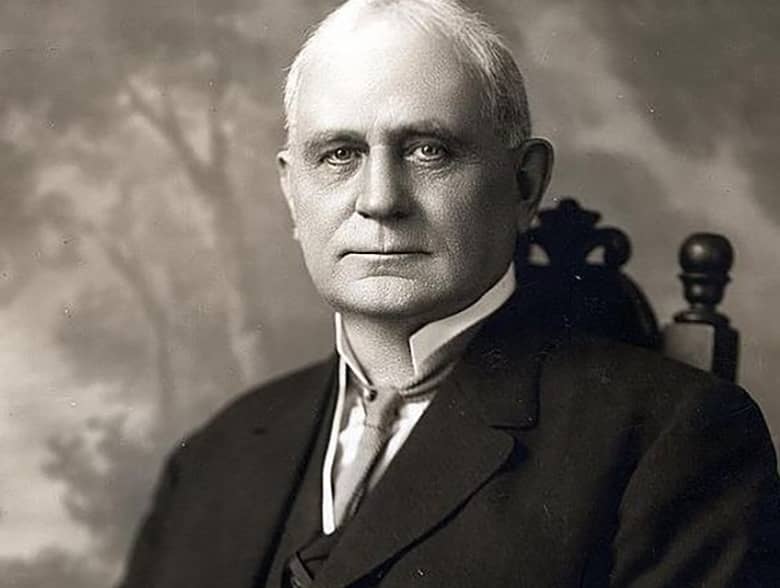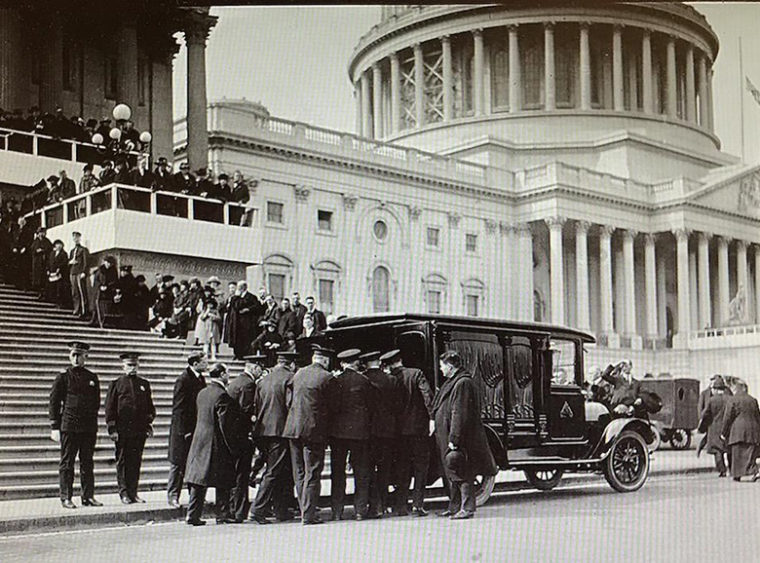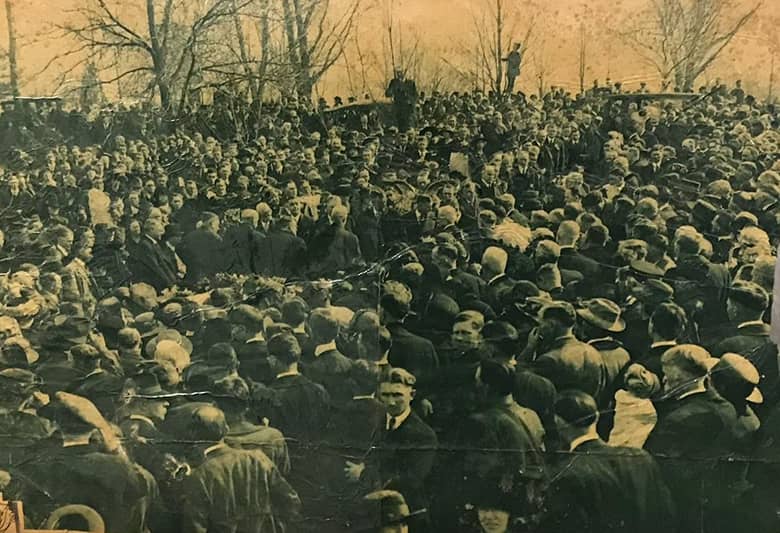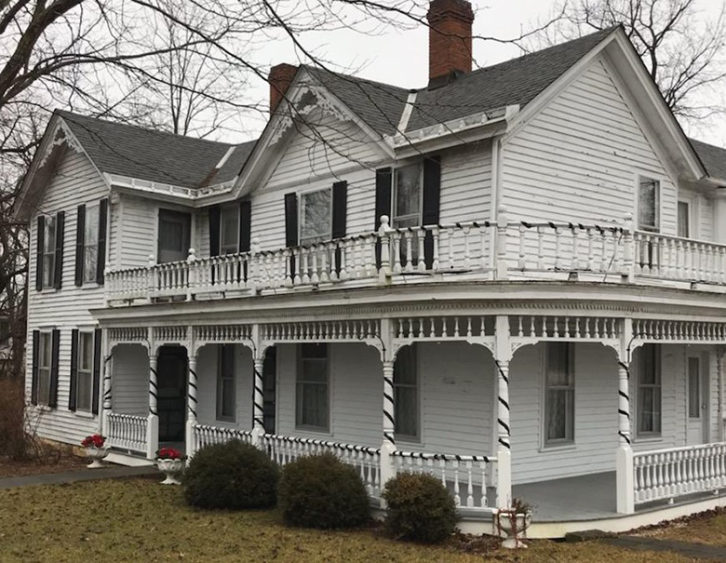
A hundred years after the death of Champ Clark, politics has hardly changed.
There’s still bitterness, hostility and backstabbing, and Clark could equally be as partisan or as unbiased as any legislator of his day.
But a key element lost between then and now is a begrudging respect that on rare occasions brought together even people of opposite perspectives.
Such was the case when Clark passed at age 70 on March 2, 1921. He was two days from ending a remarkable chapter that saw him serve 26 years in Congress – including eight as Speaker of the House – and get hoodwinked out of a presidential nomination by connivers in his own party.
But he was hardly looking back. At the time of his death, Clark had already begun a comeback.
Few can match a life that saw Clark rise from meager beginnings to a place just two tragedies from the most powerful job in the world.
It could only have happened in a country governed by the constitutional law Clark so deeply cherished and respected. And it wouldn’t have taken place without his unfettered dedication to hard work and a persistent determination to achieve.
“Endowed by nature with a strong constitution, I have been able to do more work than most men,” Clark said in his autobiography, published the year before his death. “Labor is the basis of all success – labor of brawn or brain.”
“It’s sobering to think that a century has passed since Clark died on one of his final days in the political saddle,” said great-grandson J. Bennett “Ben” Clark. “Having been a battler his whole life, with the scars to prove it, I doubt seriously that he would have faded comfortably into older age.”
No time to dawdle
Clark got swept aside by Theodore Hukriede in the Republican landslide of November 1920 that saw Warren Harding elected President.
As he had during rare defeats of the past, the former college president and Bowling Green lawyer was gracious, sending a congratulatory telegram to his Warren County opponent, who would serve only one term.
“Why must the great ‘Republican wave’ submerge the handsome and well-beloved head of Champ Clark?” bemoaned The New York Times. “What will the House be without him?”
“A landslide is no respecter of persons,” the Washington Evening Star offered. “The eminent and the obscure disappear together.”
Clark wasn’t ready to call it quits. Because the 20th Amendment hadn’t been adopted yet, his term was to end in 1921 on March 4 instead of Jan. 3. In addition, he was already looking forward to the 1922 Congressional midterms.
Just a month after the November 1920 election, the Washington Herald ran an anecdote featuring a tourist who by mistake called Clark a senator and asked how he was doing.
“Very well,” Clark reportedly replied, “but I’m not a senator – yet.”
Humor had gotten Clark through many tough times – as a farm boy in Kentucky, as an ambitious young attorney in Missouri and as the respected Speaker of the House from 1911 to 1919.
The wisecracks ran the gamut from sarcastic to self-deprecating. In 1912, William Jennings Bryan and others conspired to sway Democrat delegates away from Clark to Woodrow Wilson. The New Jersey governor was sent to the White House when Republicans split their vote between incumbent William Howard Taft and third-party candidate Theodore Roosevelt.
Genevieve Clark, whom Champ married in 1881, never forgave Bryan or some of the state delegations which switched their votes. With a tough-as-nails disposition, she would have made a great politician herself, but could not legally vote for her husband or anyone else until the 19th Amendment was ratified in 1920.
Though angry over the betrayal by a man who had once been a friend, Clark eventually made peace with Bryan and himself.
“I started out to accomplish certain things,” he famously said. “I kept pounding away at them and have achieved most of them. As a rule, I outpounded my opponents. Sometimes, I didn’t – particularly on one most notable occasion.”
As 1921 dawned, Clark had reason for optimism. In the time he had left in the House, he was still sponsoring legislation, such as an effort to lower food costs by allowing railroads better access to warehouses. He continued to join debates, such as arguments over whether to reduce or expand the number of seats in the House.
Clark participated in disagreements about Democrat Party leadership and how to move forward after the stinging defeats of the previous year.
“I am plumb out of patience with all this ruction,” he said about Democrat infighting.
Clark even found time to make sure the memorial for President Abraham Lincoln – one of his heroes – got the funding needed for a strong foundation.
Another measure to buoy the lawmaker’s frame of mind came on Jan. 24, when his son, Bennett, was admitted to practice before the U.S. Supreme Court. Meanwhile, Genevieve Clark remained busy, becoming a member of the committee that organized dedication of a Capitol statue honoring women’s suffrage pioneers.
If all of that wasn’t enough, President-elect Harding announced he was considering Clark for an unspecified job in his administration, saying he had “great admiration” for the Missourian. The New York Herald declared Clark was “just as active…as he was a score of years ago.”
“Consistent always in his school of political thought, he has gathered a broad vision of what is and what is not for the public good.” the newspaper said on Feb. 13.
The positive outlook would quickly turn into a nightmare.
Fight to the end
The first announcements appeared on Feb. 23.
As with so much to do with Clark, the notices made the front pages of papers across the nation. The news was he had a severe cold. Clark had endured minor health problems that included poor circulation due to a hardening of the arteries for at least a year, but nothing serious.
When he was in Washington, Clark lived at the Congress Hall Hotel just a block from the Capitol on the site of what is now the Longworth House Office Building. It was there that he stayed in bed to recuperate.
By Feb. 26, Clark had improved, but his personal physician, Dr. Jesse Shoup, said he was “far from out of the woods yet.” The next day, Clark took a turn for the worse. Shoup and two other doctors who were called in said their patient had “an acute infection” that affected the lungs and heart.
The office of President Wilson, who had been debilitated by a stroke in 1919, sent a box of roses to Clark’s room. Illinois Republican Congressman James Robert Mann, who as House Minority Leader had worked closely with Clark and sometimes battled him during the latter’s reign as Speaker, was among legislators who expressed wishes for a speedy recovery. Genevieve and Bennett were joined at the bedside by Clark’s daughter, Genevieve Clark Thomson.
Like he had so many times in life, Clark continued to battle until the end came at 2:10 p.m. Wednesday, March 2. His last audible words – “The question is on the adoption of the conference report” – indicated his thoughts were still with his beloved House of Representatives even as his body surrendered.
“His work never left his mind,” the Washington Times said. “What first words will he say when he wakes up in another world?”
The New York Tribune said announcement in the House by Missouri Democrat Congressman William Rucker “threw a shadow over the face” of every legislator. Rucker, an educator, lawyer and judge who would serve almost as long as Clark, had trouble speaking the words.
“It was a halting, brief eulogy he announced, but it drew from members signs of sorrow more eloquent than words to tell of the place the dead leader held in their affection and respect,” the Tribune said.
Bennett Clark, who would become a U.S. Senator and federal judge, relayed that his father’s last request was that the House not adjourn. Lawmakers halted activity for 30 minutes and upon resumption of business approved a resolution giving Mrs. Clark a bereavement gift of $9,000 – about $125,000 today.
Accolades offered
The tributes poured in almost immediately.
Harding and his wife, Florence, met with Mrs. Clark on March 3, the day before his inauguration. He spoke of last seeing Clark two weeks after the November 1920 election.
“I deeply respected his marked ability and his splendid public service, and had come to hold him in very affectionate personal regard,” Harding told Mrs. Clark. “I know that all who knew him will join me in wishing that your sorrow may be tempered in the consciousness of the country grieving with you.”
Newspapers offered praise sometimes tinged with light criticism.
“Champ Clark had as many sides as a diamond has facets: One of the best Greek scholars in this country, versed in Latin, as well as a mathematician competent to calculate eclipses, a lawyer of parts, an orator of admitted and proved eloquence and convincing quality, a sincere and reverent student of the Bible, the man was known more popularly as ‘the statesman from Pike County, Missouri,’” said the Evening Star.
The New York Tribune said Clark was “impetuous and often unguarded in speech,” but “had a candid and generous temperament and a sincere faith in the principles which he espoused.” Though “not a statesman of the first rank,” he was “yet a national figure of note.”
“Champ Clark represented well the simplicity, strength, honesty and sincerity of the old-fashioned American citizen,” the Washington Times offered.
“Champ Clark is best, and very accurately, described in the term ‘a rugged American,’” the Evening Star continued. “He had force and fight in him – was sturdy and incorruptible. He was distinctly a man of the people – understood them, and all his life remained close to them. He possessed the strong qualities – purpose and conviction, and both moral and physical courage.”
“The passing of Champ Clark will leave a considerable void in Congress and a pang somewhere within every one who likes and believes in the old-fashioned Americans,” the Philadelphia Evening Public Ledger declared.
The Columbia Evening Missourian said Clark “had enemies, but his bitterest opponents admired him as a man.”
“Was it by a mere coincidence or by the providence of God that he should round out a useful life in the closing days of his public career?” the Missourian asked.
The Washington Herald called the 1912 Democrat convention debacle an “unmerited disappointment” and said that while Clark “sometimes lapsed in judgment,” he never lost “those higher qualities.”
“No man can have a finer quality of character than that of complete loyalty expressed in terms of moral integrity,” the Herald said. “It was this character which distinguished Champ Clark. It was this which made him beloved and gave him a personal influence rarely equaled by men in public life.”
The Richmond Times-Dispatch called Clark a “useful and influential public servant,” and said discussion of what would have happened had the Speaker been elected President was “idle” talk.
“Suffice it to say, Champ Clark was outstanding in his patriotism and soundly devoted to the fundamental principles of Democracy, the support of which in the past has wrought so achievingly in the progress of the country under ordered government, designed to safeguard the rights of the humblest as well as the most powerful and influential citizen,” it said.
The Capital Journal of Salem, Ore., said Clark was “in no sense a great man” and was “a provincial, rather than a world character.” Yet, the paper agreed he was “one of the most picturesque politicians and notable characters in public life.”
Ben Clark said many today “think of him as an old-fashioned gent of a bygone era wearing a nutty beaver skin stovepipe hat and other comical clothes,” but he recently found a photo of a more contemplative legislator.
In the picture, Clark is sitting in a comfortable chair, dressed in what appears to be khakis, a button-down shirt, a blue blazer and loafers.
“It could as easily have been an image from 2021, and not 100 years earlier,” he said. “At the same time, and though he was a party man first and foremost, I’m not at all certain he would comfortably find a place in either of today’s principal political parties.”
Heartfelt services
Harding was inaugurated as planned at the Capitol on March 4 and the first funeral for Clark was held in the House chambers the next day.
In a speech that would be highly unlikely by either party today, Representative Mann offered kind words for his friend and one-time political opponent.
“Those who knew him best, loved him most, and yet millions never saw his countenance or heard his magnificent voice; never at any time were they given the benefit of his advice when they needed aid – they too loved him,” Mann said. “He was the best beloved of Americans.”
“He who sleeps today bears with him to the tomb a legacy so rare that even envy is compelled to pay the tribute of admiration,” said Missouri U.S. Sen. James Reed, who entered the Senate the year Clark became Speaker. “He long gave his service to the public welfare. Upon his country’s altar he poured out the whole of his wealth of magnificent talent, youth’s energy and old age’s wisdom.”
Immediately afterward, the casket was sent by train to St. Louis and then to Bowling Green, where it arrived at noon on Monday, March 7 – what would have been Clark’s 71st birthday.
“Men, women and children…tried to hide their emotion or openly wiped tears from their eyes as the black casket bearing Clark’s body was lowered from the car,” said the Evening Missourian.
A procession led by the mayor – attorney, banker and businessman Vivian S. Smith – marched from the depot to the Pike County Courthouse, where the body laid in state for two hours while mourners filed past to pay their respects.
The casket was then taken to Bowling Green City Cemetery, where an estimated 10,000 people – five times the city’s population then – gathered for the service, which was conducted by one of Clark’s nephews, the Rev. Robert S. Boyd, who had performed the nuptials for young Genevieve’s wedding in 1915.
“Never again will this city witness such a crowd…who came pouring into the city to witness the services,” the Bowling Green Times said.
“Never had Bowling Green displayed such outward signs of grief,” Robert M. Switzer wrote for The Quincy Journal. “In nearly every window of the business district, the portrait of the former speaker was displayed. From the windows of the courthouse hung large festoons of black and white bunting. The large flag on the building flew at half-mast all day.”
Dignitaries came from Jefferson City, St. Louis, Washington and other locales. Schools and most businesses were closed for the day. The price tag for floral arrangements sent from across the country, including one from the Hardings, was pegged at what today would be more than $41,000.
Churches served free sandwiches and provided restrooms. People opened their houses so that long-distance travelers could rest before leaving town. Additional trains were added to the regular schedule and there was barely a parking place to be found anywhere in the city limits. The Bowling Green Times said “all were cared for in a manner which would do justice to a town much larger.”
The only Clark family member missing was young Genevieve, who would run unsuccessfully for Congress in 1924. She was kept in Washington by illness.
The only time Bowling Green had seen so many visitors was for her wedding at the family home, Honey Shuck. An estimated 8,000 to 12,000 people showed up after the Speaker had decided against formal invitations and announced that everyone in Missouri was welcome.
No sooner had the throngs arrived on that cool, cloudy day in March 1921 than they left, and in their wake was a sense that nothing would be the same.
Pike County had been known across the country at least since the Gold Rush and its residents were titans of politics, business, education and the arts. But now, it had lost one of its biggest champions. There would be others, of course, but none who would equal Clark’s acclaim or popularity.
Honors would continue over the years, with a statue of Clark being erected on the south side of the Pike County Courthouse in 1926. Even more significantly, the name was attached to the U.S. Highway 54 Bridge at Louisiana in 1928 and also to its replacement in 2019.
From time to time, Clark makes the news, such as in 2018, when then-House Minority Leader Nancy Pelosi broke his 1909 record for longest speech on the House floor.
Clark is inescapable in Pike County. In addition to the statue and bridge, Honey Shuck and an annex are filled with memorabilia, and are available for tours. And then there are the countless people across many professions who have been influenced by him.
Writing for The Journal in 1921, Switzer said Bowling Green had shown Missouri and America that “her favorite son was worthy of that high tribute his service deserved – that he was honored, loved and respected in his own home.”
Ben Clark said his family “is fiercely proud of the man” because his “truthful earnestness and fighting spirit separated him from most others, and provided a clue as to why so many, from near and far, came to bid him farewell that late winter day in Bowling Green. They also tell why, in some quarters anyway, he is remembered and revered to the present moment.”
Ben Clark spoke at the groundbreaking for the new Champ Clark Bridge on Sept. 8, 2017. As he did, a bald eagle flew low to the ground in a direct line overhead. Some may have wondered if it was Champ’s spirit coming to make sure things were done according to protocol. They were, and Ben returned for dedication of the completed structure on Aug. 3, 2019.
Clark is an attorney for a world-renown law firm in St. Louis. Just days ago, he offered what could be described 100 years after his great-grandfather’s passing as the best eulogy of all.
“Though I missed meeting him by more than three decades, he is never far from my mind. I admire, and more accurately, idolize him for being a self-made person of the poorest means who, through force of will and self-belief, pulled himself up to the highest level of our governance and political, historical and even philosophical thought. That he was loved by men who he regularly sledge-hammered in debate has inspired me to try to be on friendly terms with opponents and difficult people, in the name of human common experience. The standard he set has been hard to meet.”
One more thing
Among the thousands who attended Clark’s funeral in Bowling Green was a farmhand decked out in overalls and an old shirt.
As people congregated, he offered an observation about friends and strangers alike. Clark, even at the height of political turmoil, probably would have wholeheartedly agreed.
It’s also the kind of Pike County thought that perhaps should be put to practical use in Washington today.
“And there ain’t an enemy among ‘em,” the man said.


